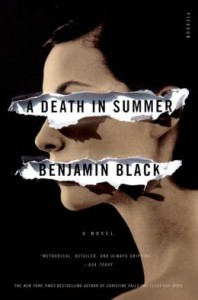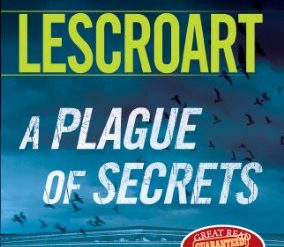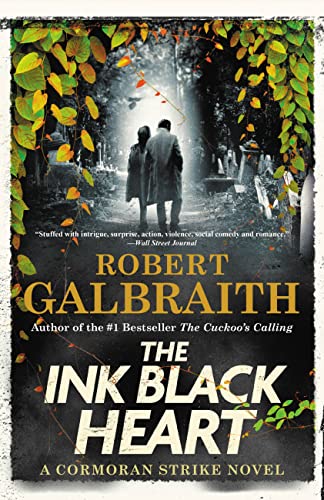
Here is Quirke in the fourth entry in Benjamin Black‘s series about the unconventional sleuth. He’s a middle-aged Dublin pathologist. It’s 1956, and he’s contemplating the beautiful French widow he has fallen for, hard. “They had made no plan to meet again, he and Francoise, but it did not matter, he knew they would meet again, that the fates would arrange it. The fates would arrange everything; there was nothing he need do but wait. And all the time, while that young Lothario gamboled in the meadows of his fancy, plucking nosegays and ecstatically calling out his beloved’s name, in another, unenchanted part of his mind, the old dog he really was shuddered in dismay at the thought of the violent and bloody circumstance that had led him to this love.”
I don’t know about you, but I find it difficult to resist writing like this, especially when I encounter it in a murder mystery. The mystery genre abounds with what used to be called “workmanlike” prose before the feminist revolution; perhaps it’s just “serviceable” now. But Benjamin Black, pseudonym of the Booker Award-winning novelist John Banville, who reportedly writes mysteries for fun and profit, can’t seem to help himself. A Death in Summer, and the five other novels in his series about Quirke, the consulting pathologist in the Dublin city morgue and an amateur sleuth, all feature crisp, evocative prose as well as sharply drawn characters.
A Death in Summer (Quirke #4) by Benjamin Black ★★★★☆
The “death in summer” that gives this tale its title is the shotgun beheading of a ruthless Dublin businessman who leaves behind a French widow, a sister, and enough enemies to populate an Agatha Christie whodunit. However, despite a plethora of suspects, Quirke and Hackett, his collaborator in the Garda (the Dublin police), focus on those closest to the deceased. As the investigation unfolds, Quirke dives deeply into the complex relations within the victim’s family becomes romantically involved with the widow.
Quirke’s daughter, Phebe, and his assistant in the morgue, David Sinclair, become peripherally engaged in the case and find themselves drawn together. Eventually, as seems to be the case in all the Quirke novels, the Catholic Church turns up in a pivotal role, and one that’s none too pleasant. Benjamin Black, it would seem, is either a bitter fallen Catholic or a Protestant with a big chip on his shoulder.
For additional reading
I’ve reviewed all the novels published to date in this series at The Quirke series of Dublin crime novels from Benjamin Black.
You might also enjoy my posts:
- Top 10 mystery and thriller series
- 20 excellent standalone mysteries and thrillers
- 30 outstanding detective series from around the world
- Top 20 suspenseful detective novels
- Top 10 historical mysteries and thrillers reviewed here
And you can always find my most popular reviews, and the most recent ones, plus a guide to this whole site, on the Home Page.


























